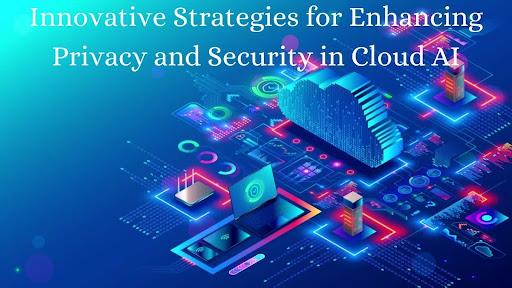Innovative Strategies for Enhancing Privacy and Security in Cloud AI
The convergence of blockchain, federated learning, and cloud AI addresses critical data privacy and security challenges. Neetu Gangwania renowned expert in technological innovationshighlights this approach as timely, meeting the needs of organizations aiming to uphold data confidentiality while advancing collaborative AI development.
Federated Learning: Decentralized Data for Centralized Intelligence
Federated learning (FL) allows collaborative AI training without sharing raw data, ensuring privacy and compliance with data laws. A central server coordinates updates, reducing data transfer and making FL suitable for regulated industries like healthcare and finance.
Blockchain: Building Transparent and Immutable Systems
Blockchain’s distributed ledger ensures transparency, security, and immutability by recording transactions in tamper-resistant blocks. Integrating blockchain with federated learning (FL) enables secure logging of model updates, making contributions visible and validated by network participants. This dual verification layer strengthens trust and mitigates risks of malicious interference, advancing collaborative AI.
The Power of Decentralized Model Updates
Blockchain-enabled federated learning treats model updates as transactions. Each participant submits locally trained updates, which are verified and recorded on the blockchain, ensuring no single entity dominates model development. This maintains fairness and prevents biased or unauthorized changes, safeguarding the integrity of results.
Smart Contracts: The Guardians of Model Integrity
Smart contracts automate the validation and consensus of model updates, enforcing predefined rules to detect anomalies and ensure security. Embedded in the blockchain, these self-executing contracts accept only compliant updates, preserving model integrity and streamlining collaboration without requiring centralized oversight.
Incentivizing Participation Through Blockchain
Blockchain-based incentive structures can boost participation in federated learning by rewarding contributors with tokens for providing valuable data, computational resources, or quality model updates. Aligning these incentives with system goals promotes sustained, honest involvement, fostering a collaborative ecosystem where participants enhance the global model without risk of exploitation.
Access Control and Identity Management: Strengthening Security
Combining blockchain with federated learning enhances identity management and access control. Blockchain’s cryptographic features ensure secure identity verification, allowing only authorized participants in the training process. This decentralized framework empowers users to control their data and participation, strengthening overall system security.
An Audit Trail for Compliance and Accountability
Blockchain’s immutable record-keeping creates a complete audit trail for all federated learning interactions, enhancing accountability and regulatory compliance (e.g., GDPR, HIPAA). It enables verification of model update origins and integrity, simplifying audits and ensuring transparency, crucial for strict data governance and ethical AI practices.
Potential Applications: A Glimpse into Future Use Cases
The integrated approach of blockchain-enabled federated learning has applications spanning multiple sectors:
- Healthcare: Collaborative model training across medical institutions can improve disease diagnosis and treatment plans without compromising patient data.
- Finance: Secure cross-institutional fraud detection models can be developed while maintaining transaction privacy.
- Smart Cities: AI models can be trained on urban data to optimize traffic flow and energy usage while safeguarding citizens’ privacy.
- Supply Chain Management: Companies can enhance demand forecasting and inventory management through collective AI without revealing sensitive business information.
- Edge Computing: IoT and edge devices can collaborate on real-time data analysis securely, vital for applications such as autonomous vehicles and industrial automation.
Challenges and the Road Ahead
While promising, this approach faces challenges. Scalability is a concern, as blockchain networks can experience latency with high transaction volumes. Research on sharding and layer-2 solutions is vital for better throughput. Advanced techniques like differential privacy and homomorphic encryption are essential for enhancing data security during training.
In conclusion, Neetu Gangwani‘s insights on integrating blockchain, federated learning, and cloud AI reveal a transformative path for secure, collaborative AI development. This approach tackles privacy, trust, and interoperability, setting the stage for future innovations and fostering a responsible, compliant, and inclusive AI ecosystem.


Comments are closed.